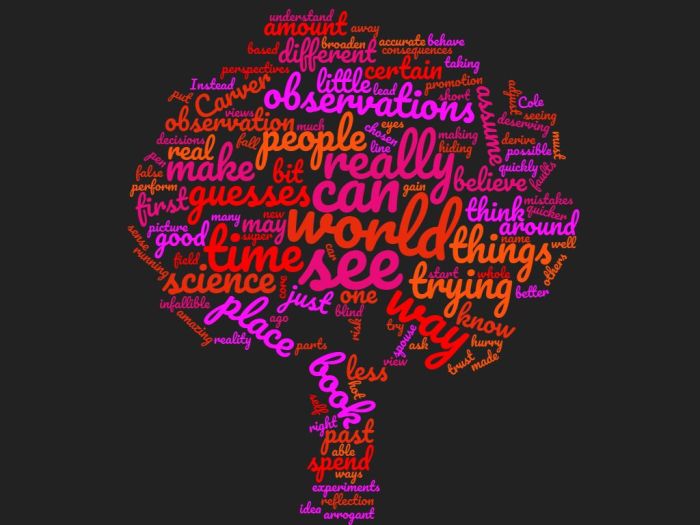A couple years ago, one of my good friends wrote a book called Vector Rising under the pen name Cole Carver. The book is a science fiction thriller about a character who is able to see a little bit ahead of normal people. The idea for Carver stemmed from the science behind the way the brain processes motion and images. By the time an image has made its way from the source, through our eyes, and into our head, we are seeing a little bit into the past. We see just a fraction into the past, not a huge amount but a real amount, and our brains make up for this by predicting what is going on around us, especially with any movement, and using that prediction to create what we see.
A line from the book reads, “While science depends on experimentation, I’m here today to talk to you about a different core element: observation. If you recall, it’s the first step in our most sacred methodology. Before we make our guesses and r un our tests, we must first figure out what it is we see.” This was dialogue from one character to another, but I think it is actually a great point for all of us in our lives. We assume we know what it is we see around us and we believe the things we observe about the world, but frequently what we see really isn’t really what is happening. Biases can creep into the way we interpret certain events, we can mis-remember things that took place (or didn’t take place), and we can see a dress as a different color than what it really is. Our observations are not always as good as we would believe, and it is important that we think critically about what we see and try to gain as many perspectives on important things as possible.
If we start running through the world too quickly and are in too much of a hurry to trust our observations, we risk making mistakes that can have real world consequences. We may see ourselves as infallible and as deserving a new car, a promotion, or a super hot spouse. Our observation is only on the amazing parts of who we are because we have chosen to be blind to reality by hiding away our faults. The guesses we derive from our false sense of self can lead us to make arrogant decisions and to behave in ways that put down other people. This is dangerous not just for ourselves, but for the people we may interact with as well.
Ultimately, we should spend less time assuming that we know the world based on what we see, and more time trying to understand if what we see is an accurate reflection of the world. We should be quicker to assume that we don’t see the whole picture, and spend more time trying to broaden our field of view and less time trying to perform experiments that confirm our guesses. Instead of being so certain that we see the world the right way, we should ask others how our views fall short, and we should adjust them to have better observations of what is really taking place in the world.
